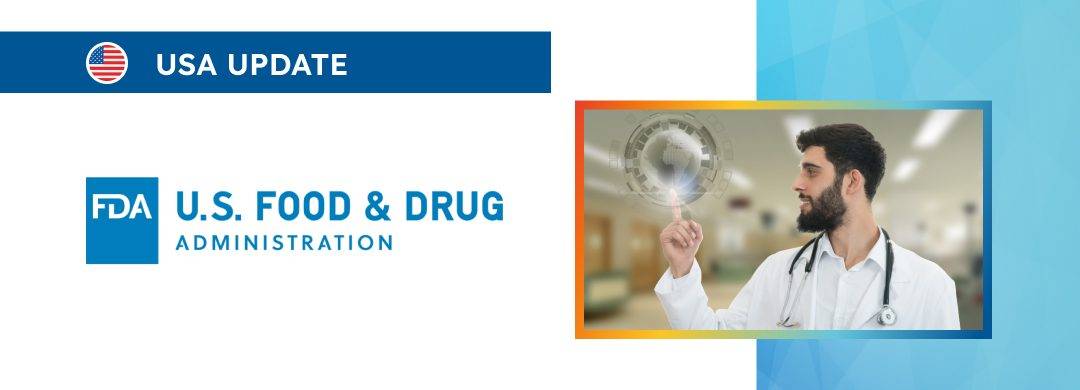The article highlights the key points related to the specific aspects to be considered when using real-world data to support marketing applications related to medical devices.

Table of content
The Food and Drug Administration (FDA or the Agency) has published a draft guidance dedicated to the use of real-world evidence to support regulatory decision-making for medical devices.
Once finalised, the document will provide an overview of the applicable regulatory requirements, as well as additional clarifications and recommendations to be taken into consideration by medical device manufacturers and other parties involved to ensure compliance thereto.
At the same time, it is also important to mention that provisions of the guidance are non-binding in their legal nature, nor are they intended to introduce new rules or impose new obligations.
Moreover, the authority explicitly states that an alternative approach could be applied, provided such an approach is in line with the relevant legislation and has been agreed with the authority in advance.
In particular, the present FDA draft guidance provides an in-depth overview of using Real-World Data (RWD) and Real-World Evidence (RWE) in regulatory submissions.
Introduction
First of all, the authority emphasizes the exceptional importance of using RWD and RWE in the healthcare decision-making process and regulatory submissions.
It underscores the growing relevance of these data sources in the healthcare sector, highlighting their role in enhancing the understanding and evaluation of medical products in real-world settings.

Documentation and Review of RWD
Furthermore, the authority emphasizes the importance of detailed documentation of RWD sources.
According to the guidance, these sources should contain sufficient details to address study questions and assess the continuity of care.
The guidance also outlines essential elements for FDA submission, advising sponsors to provide a detailed rationale and high-level summaries of the RWD used in their submissions.
As explained by the FDA, this approach is vitally important for ensuring the appropriateness and reliability of data for regulatory decision-making.
Data Reliability Elements
The document also highlights the necessity of establishing comprehensive descriptors for data sources.
This includes ensuring complete and accurate data collection and documenting routine data migration.
The guidance further recommends providing detailed descriptions of data quality, access levels, and data protection measures to ascertain the integrity and security of the data used in regulatory submissions.
Practical Examples
Several examples are provided to illustrate the approach for the use of RWD in regulatory decision-making described in the guidance.
These include new or expanded indications for medical devices and submissions under section 522 of the FD&C Act.
Particularly notable are the examples related to emergency use authorizations (EUAs) during the COVID-19 pandemic, which demonstrate the critical role of RWD in urgent public health scenarios.
Study Design Considerations
The guidance also advises on the planning and documentation of data extraction processes.
It emphasizes the importance of ensuring data completeness and consistency and assesses the impact of data changes over time.
The document also highlights the importance of defining auditing rules, ensuring adequate study size and pre-specifying data checks to maintain the study’s validity and reliability.
A separate section of the guidance underscores the necessity of ensuring patient data privacy and adhering to ethical standards.
It includes recommendations for securely storing data and managing access permissions, emphasizing the importance of safeguarding patient information in the course of collecting and using RWD.
The document is supplemented with appendices and references to additional resources that provide further details and context for the use of RWD and RWE in regulatory decision-making and are aimed at aiding sponsors in the preparation and submission of their data for regulatory review.
Conclusion
In summary, the present draft guidance issued by the FDA is intended to provide the parties responsible for medical devices with additional guidelines on the approach to be followed when using real-world data and real-world evidence in regulatory submissions to support claims made for their products.
The document highlights the key points to be taken into consideration and also advises on some specific matters that are vitally important.
How Can RegDesk Help?
RegDesk is an AI-powered Regulatory Information Management System (RIMS) designed to simplify global compliance for medical device companies. With regulatory intelligence covering 120+ markets, RegDesk helps you prepare and publish global submissions, manage standards, conduct impact assessments, and stay ahead of regulatory changes all from a single, centralized platform. Expanding into new markets has never been easier.

